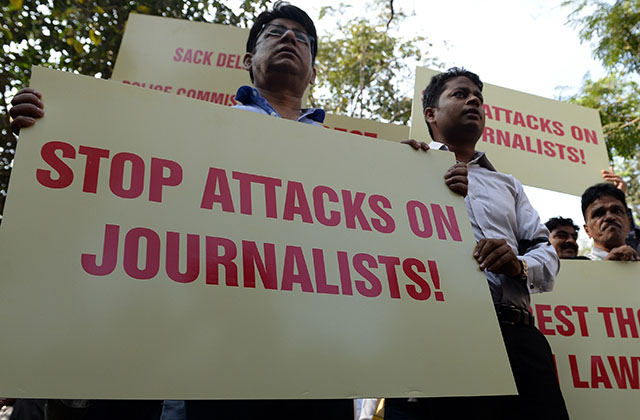
As India and Pakistan edged dangerously close to full-scale conflict in May 2025, the Narendra Modi government responded not only with military strikes but also with an unprecedented crackdown on press freedom and digital expression within India. While national security concerns are often cited as justification, the scale and intensity of censorship reveal a disturbing pattern of authoritarian control that undermines democratic principles and the public’s right to information.
Following the April 22 militant attack in Pahalgam, which killed 26 civilians, India launched Operation Sindoor—missile strikes targeting alleged militant camps in Pakistan. Amid this heightened military tension, the Indian government ordered the blocking of over 8,000 social media accounts on platforms like X (formerly Twitter), including those of prominent journalists, activists, and even independent news outlets such as The Wire. Several Pakistani and Bangladeshi news channels were also banned without prior notice or transparent explanation.
This sweeping censorship has drawn sharp condemnation from international press freedom organizations like Reporters Without Borders (RSF), which described the government’s actions as “alarming” and a “dramatic violation of the right to reliable information.” RSF highlighted that such measures, rather than ensuring security, serve to stifle dissent, silence critical voices, and create a vacuum filled by disinformation and propaganda.
Among the most notable instances of media censorship is the blocking of The Wire, a prominent independent news portal known for its investigative journalism and critical coverage of government policies. On May 9, 2025, readers across much of India found themselves unable to access thewire.in, following orders reportedly issued by the Ministry of Information and Broadcasting under the Information Technology Act, 2000.
Internet service providers informed users that the website was blocked on government instructions, though no formal explanation was provided publicly. The Wire condemned the move as a blatant violation of the constitutional guarantee of press freedom and vowed to legally challenge the arbitrary censorship. The ban drew widespread condemnation from opposition leaders, journalist bodies, and civil society, who warned that silencing independent voices during a critical national moment undermines democracy and the public’s right to truthful information. Alongside The Wire, thousands of social media accounts, including those of journalists and activists, were also restricted, reflecting a broader pattern of digital clampdown by the government during the conflict.
The Indian mainstream media itself has been complicit in spreading misinformation and sensationalism during the crisis, broadcasting doctored visuals and fake news that fueled panic and anxiety among citizens. Anchors celebrated unverified “victories” and circulated false reports about attacks on Pakistani cities, further distorting public perception and undermining journalistic integrity.
Moreover, journalists critical of the government’s Kashmir policies have faced arrests and harassment, with freelance reporter Hilal Mir detained on charges of spreading “anti-national content.” The government has also imposed bans on live coverage of anti-terror operations, severely restricting independent reporting from conflict zones25.
This crackdown exposes the Modi administration’s willingness to sacrifice democratic freedoms under the guise of national security. Instead of fostering transparency and accountability, the government’s approach has deepened polarization, eroded trust in the media, and weakened India’s standing as the world’s largest democracy.
In a time when reliable information is crucial for public understanding and peacebuilding, the suppression of free speech and the proliferation of state-aligned narratives threaten to do lasting damage to India’s democratic fabric. The Modi government must reconsider its heavy-handed tactics and uphold the fundamental rights of its citizens to free expression and access to truthful information.
Comments
Post a Comment